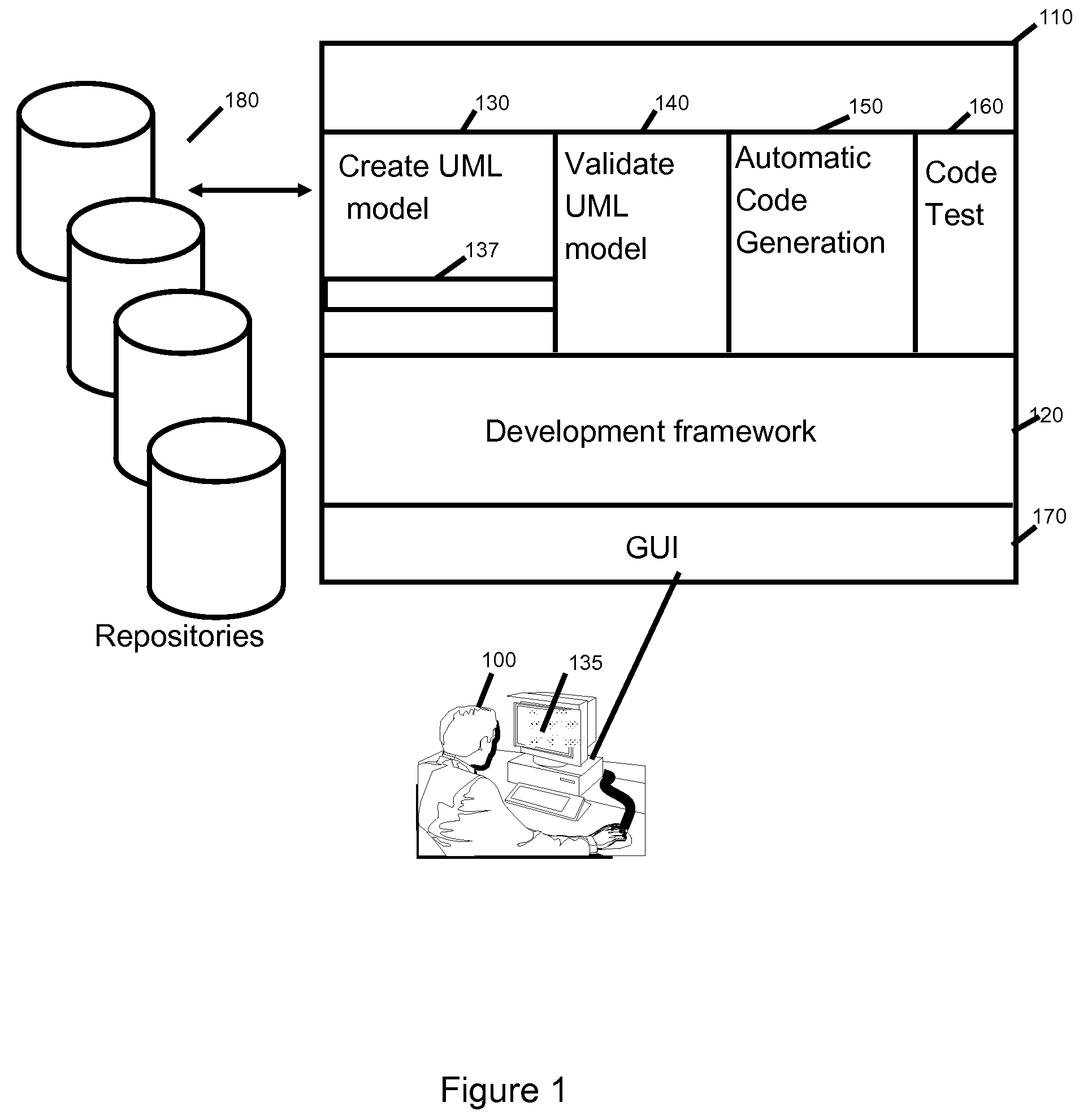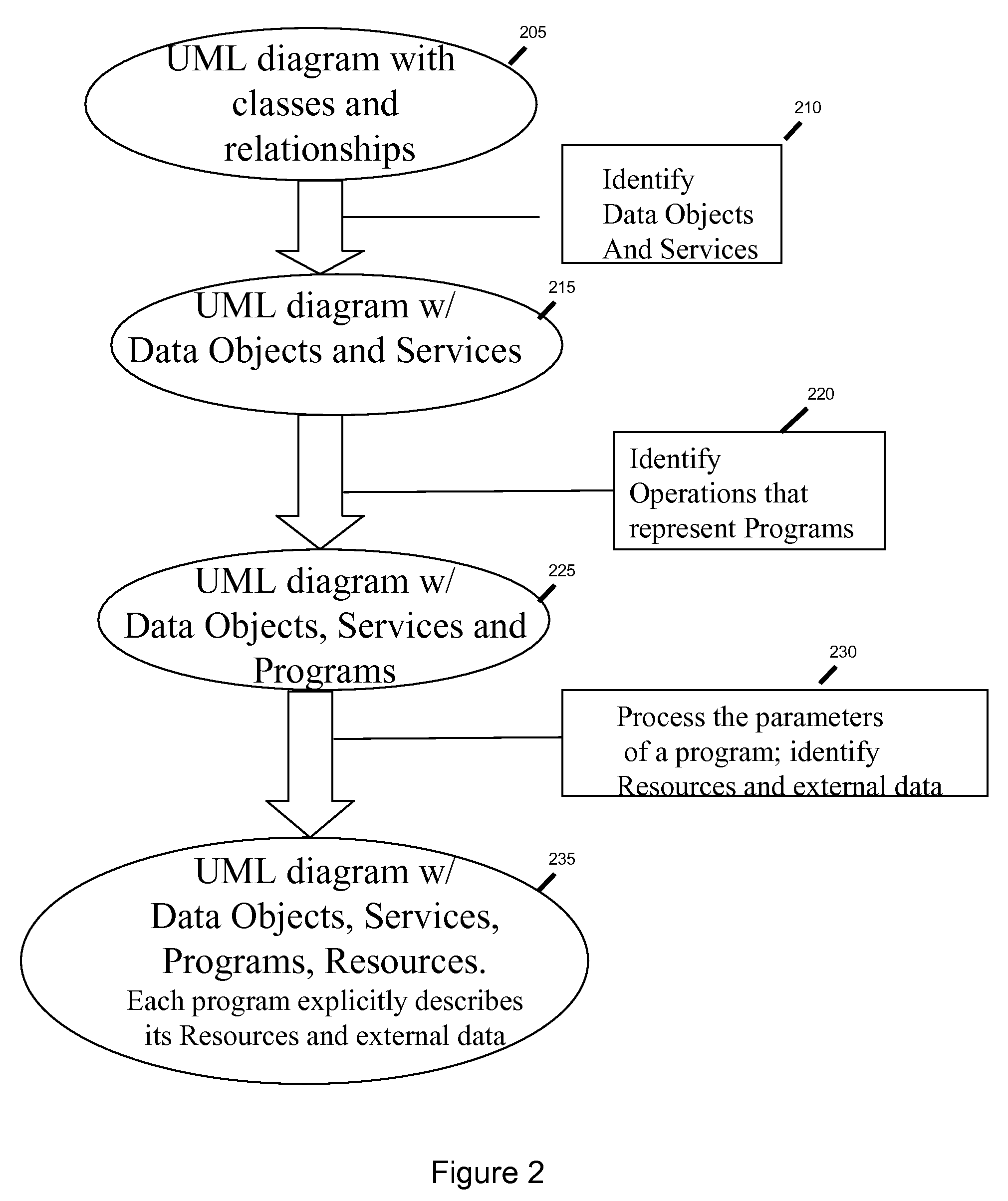Method and system to modelize resources and external data of a program for procedural language coding
a procedural language and external data technology, applied in the field of software development, can solve the problems of not providing a method to define the resources and data manipulated by a program, cannot be directly and obviously represented by uml 2.0, and cannot be used by uml to specify a data structure independently from its physical implementation,
- Summary
- Abstract
- Description
- Claims
- Application Information
AI Technical Summary
Benefits of technology
Problems solved by technology
Method used
Image
Examples
Embodiment Construction
[0061]FIG. 1 is the system environment of the method of the preferred embodiment. The developer (100) who wants to create procedural programming code, uses a development framework (120) on his computer and a UML design tool (130) for designing programs with graphical user interface (137), for validating the model (140), for creating code (150), automatically in the preferred embodiment, and testing it (160) using a code test environment. Repositories (180) storing models, code elements, scripts etc. . . . are accessed by these design tools. A UML class diagram (135) representing the classes and their relationships is displayed on the console of the developer. These classes will be used by the components of the application. With the method of the preferred embodiment, the developer can extend the class diagram and identify the operation of a class, which is supposed to represent a program. The parameters of the operation will capture the data manipulated by the program. The developer...
PUM
 Login to View More
Login to View More Abstract
Description
Claims
Application Information
 Login to View More
Login to View More - R&D
- Intellectual Property
- Life Sciences
- Materials
- Tech Scout
- Unparalleled Data Quality
- Higher Quality Content
- 60% Fewer Hallucinations
Browse by: Latest US Patents, China's latest patents, Technical Efficacy Thesaurus, Application Domain, Technology Topic, Popular Technical Reports.
© 2025 PatSnap. All rights reserved.Legal|Privacy policy|Modern Slavery Act Transparency Statement|Sitemap|About US| Contact US: help@patsnap.com



